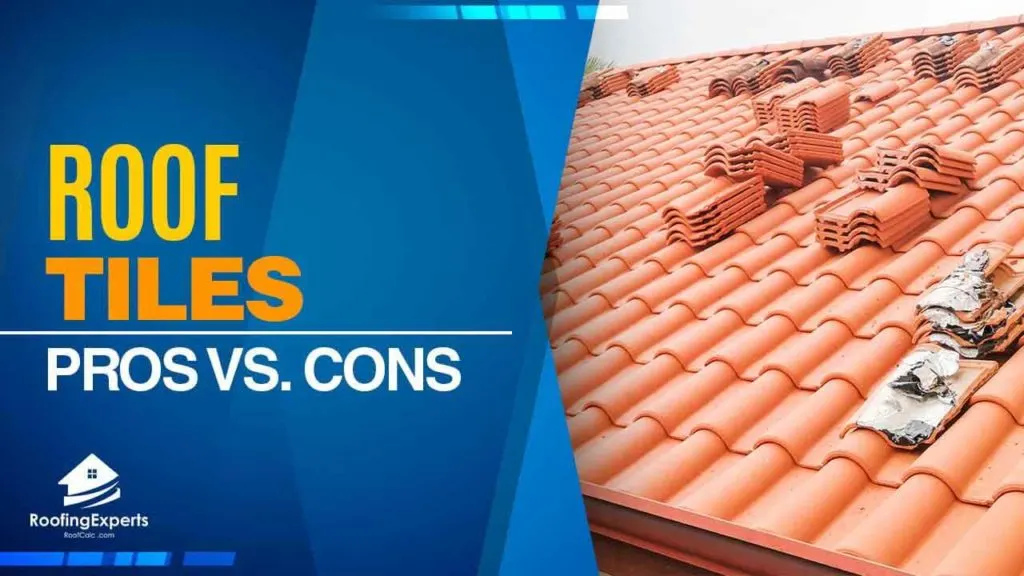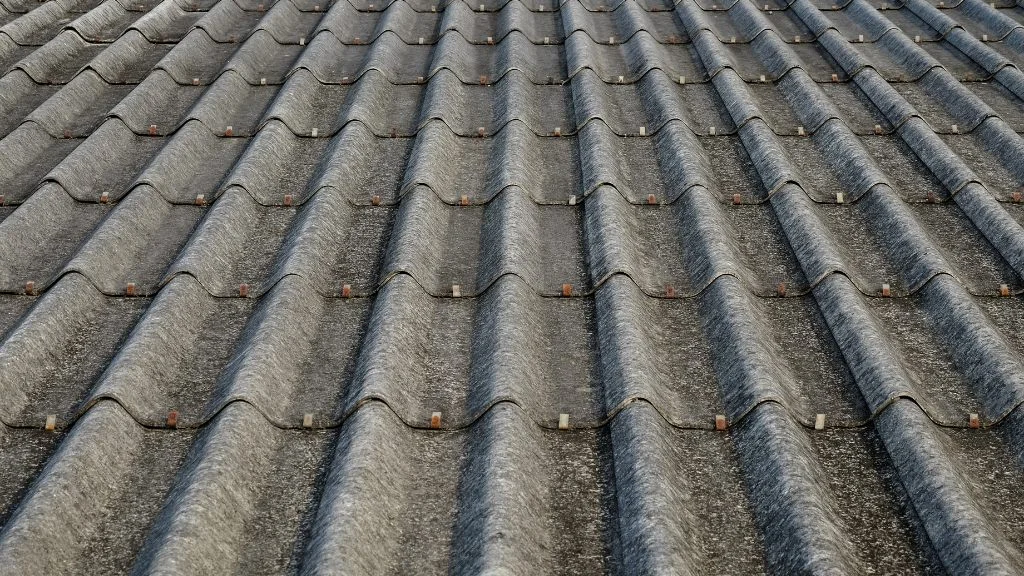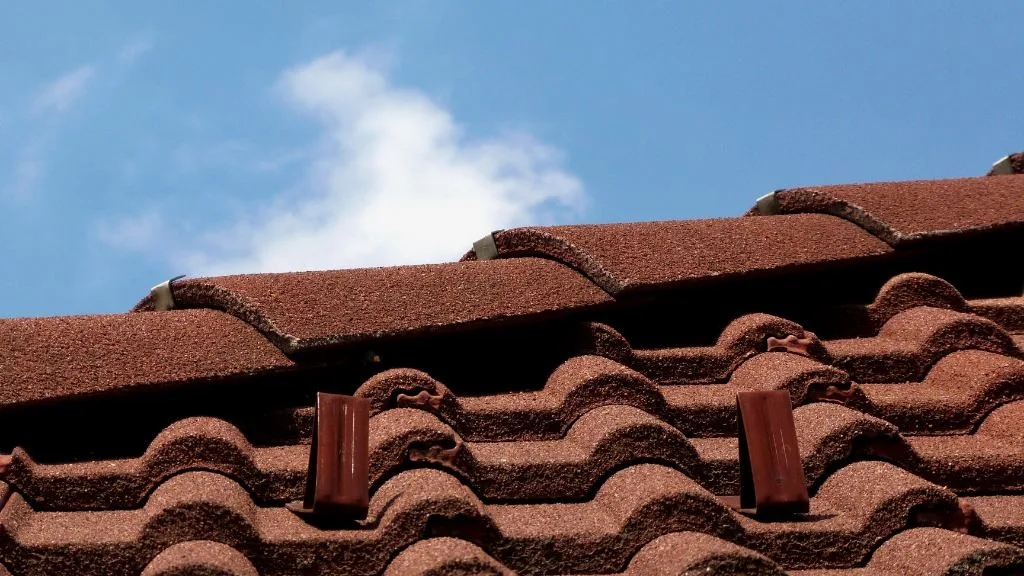
Concrete roof tiles have been used for centuries because of their longevity and durability. They are made from a mixture of sand, cement, water, and gravel. The cement is what makes the concrete waterproof, so it is a popular choice in areas where there is a lot of rain or snowfall.
You may be wondering why you should choose concrete over asphalt shingles as your roof material. In this blog post, we will explore the pros and cons to help you make an informed decision!
Reasons To Choose Concrete Roof Tiles (Pros)
Concrete roof tiles are commonly made from a mixture of concrete and rocks which when dried, baked or cured becomes extremely strong and durable. They are used widely today because unlike the traditional clay tiles, they don’t get damaged easily even if they experience extreme weather conditions. This is thanks to their composition and design.
Concrete roofing tile manufacturers usually produce two types of concrete roof tiles. These include the flat concrete roof tile and the curved concrete roof tile which is also called Spanish roof tile.
The flat tiles are popularly known for their simple design and they are often used to replace the clay, slate or wood shingle-style roofs whereas the curved version is usually installed on older homes to give it a more traditional look.
The features of this type of roofing brings a lot of reasons why homeowners choose to use concrete roof tiles. Here are reasons why:
1. Durability – Concrete roof tiles are known for their durability and can last up to 50 years or more with little to no maintenance required.
2. Resistance to Weathering – Concrete is a very strong material that doesn’t easily get damaged by weather conditions such as rain, snow, wind, or sun.
3. Low Maintenance – Unlike other roofing materials such as clay, slate, or wood, concrete roof tiles rarely need any maintenance.
4. Fire Resistance – Concrete is a non-combustible material and will not easily ignite or burn.
5. Aesthetic Appeal – Concrete roof tiles come in many different colors and styles that can enhance the look of any home.
6. Cost-effective – Concrete roof tiles are often more affordable than other types of roofing materials.
7. Easy Installation – Concrete roof tiles can be installed by a professional or by the homeowner himself.
8. Recyclable – Concrete roof tiles can be recycled and reused when they reach the end of their life cycle.
Aside from the fact that they are durable and weatherproof, concrete roof tiles are also fire resistant which is an important factor to consider when choosing materials for your roof.
Their installation is also relatively easy which is another plus point. All you need is a solid surface to place them on and some basic tools to get your job done.
There are different types of concrete roof tiles available which provide homeowners with more options when it comes to deciding on the style and design they want for their roofs. It’s easier than ever before to own a beautiful home with the right roofing material in place.
When it comes to choosing a roofing material for your home, concrete roof tiles should definitely be one of your top considerations.
Reasons People Don’t Choose Concrete Roof Tiles (Cons)
On the other hand that there are reasons why a lot of homeowners choose concrete roof tiles, there are other homeowners that do not select concrete roof tiles because of particular factors.
The following are the reasons why some people don’t choose concrete roof tiles.
1. They are Heavy
One of the reasons why some people don’t opt for concrete roof tiles is because they are heavy. This means that it would require more manpower and effort to install them, as well as remove them when needed.
2. They Are Unattractive
Some see it to be aesthetically unpleasing, especially when compared to other roofing materials such as asphalt shingles or clay tiles. Another reason why some people don’t choose concrete roof tiles is that they are unattractive. They are not aesthetically pleasing and will definitely not add to the overall attractiveness of a house or building.
3. They Are Expensive
Another reason why some people don’t choose concrete roof tiles is that they are quite expensive in comparison to other types of roofing materials such as asphalt shingles, metal sheets, clay tiles, or wood shakes.
4. They Can be Damaged Again Easily
Concrete roof tiles are more vulnerable to damage as compared to other types of roofing materials. They can be easily damaged by hail, strong winds, and falling objects. This means that they will need to be repaired or replaced more often than other types of roofing materials.
5. They Require Maintenance
Concrete roof tiles also require maintenance. This is because they need to be regularly checked and repaired to ensure that they will be durable. Furthermore, this means more cost on the part of homeowners as maintenance fees such as repairing damages incurred by hail or broken tiles due to strong winds or falling objects need to be paid.
6. They Can’t be Easily Replaced When Damaged
Another reason why some people don’t choose concrete roof tiles is that they can’t be easily replaced when broken or damaged. This means that homeowners will need to get a new one and if the original concrete roof tile has already been corroded, this would mean spending more money on replacements.
However, we all have to note that what is a pro for one, is a con for another. This is because each homeowner has their own choices and point of view. What may be a con for one, might be a pro for another. So weigh the pros and cons before making your decision!
Cost of Installing Concrete Roof Tiles
Concrete tiles are an excellent investment for your home. With installation costs averaging $6 to 12 per square foot, you can expect a spend between $11,000 to $22950 on a 1500 sq ft roof.
There are also other factors that influence the cost when you want a concrete roof tile installed. These factors include:
1. Roof slope
2. Roof complexity
3. Roof size
4. Roofing material and labor costs
5. Weather conditions
Roof Slope
The steep-slope roof is one of the most common types in residential homes. It has a greater than 18-degree slope and this makes for a challenging installation process, The steep-slope roof is a challenging and specialized type of construction that requires professional installation, repair, or maintenance by an experienced company.
Roof Complexity
There are a number of factors that can make a roof more complex. This includes the presence of dormers, valleys, hips, and ridges.
All of these features add to the complexity of the roof installation and will increase the cost.
Roof Size
The size of the roof will also have an impact on the installation cost. The larger the roof, the costlier it will be to have installed because of the complexity involved. Also, larger roofs tend to need more underlayment materials and a special adhesive.
Weather Conditions
If you are looking for concrete tile installation in your region during summer or winter, that will come with its own set of challenges. The summer season is especially challenging because of the heat and the need for adequate ventilation.
Installation in winter is difficult because of the cold weather and the possibility of ice damming.
There are many factors to consider when calculating the cost of installing a concrete roof tile. By understanding these factors, you can make an informed decision about whether this type of roofing is right for your home.

Why Should You NOT Install Concrete Roof Tiles on Your Own?
The roof is one of the most important parts of any home or building. It protects you and your family from the elements such as rain, snow, and the sun. If it’s not done properly, it can lead to a number of problems down the road including water leaks and even flooding in severe cases.
Installing tiles on your own can seem like a simple task, however, there are many factors that should be considered before you take on the project.
Here are five reasons why you should not install concrete roof tiles on your own:
1) Installing concrete roof tiles is extremely heavy work – It takes more than one person to safely handle the large number of tiles needed for most projects.
2) It can be dangerous – If you don’t have the proper safety gear, you could easily fall and injure yourself.
3) It’s a complex process – There are many steps involved in installing tiles properly, from measuring to mixing mortar to aligning the tiles.
4) You need special tools and equipment – Unless you have access to a specific pressing machine, you won’t have the means to create your own tiles.
5) You could cause problems with the roof – Incorrect installation can lead to future leaks and even damage to the roof itself.
When looking for someone to handle all of these tasks for you, keep in mind that not just anyone can do it properly. Make sure to choose a contractor who has experience installing concrete roof tiles and who is licensed and insured.
How Long Does a Concrete Roof Tiles Last?
As a general rule, it is possible to get the lifespan of your roof extended by at least 50 years with proper care. Make sure you are using quality materials and installing them correctly with underlayment will be key in determining how long they last beyond the expected lifespan.
With proper maintenance, a concrete tiled roof can last for up to 50 years.
Average Roofing Tiles Lifespan
Roof tiles are not expected to last more than 20 to 30 years. Period. This is because even though they are made of concrete, the cement board that forms them is much different from regular concrete used in sidewalks and foundations. Concrete roof tiles are much cruder in their production process which means that the permeability and strength of the cement board have been reduced.
Concrete roof tiles are made by placing a layer of sand, a layer of wire mesh, and a layer of concrete onto wood support. The three layers are covered by another piece of plywood which is flipped over so that the sand side is now facing up. Metal rods are driven into the concrete from underneath and then bent over to create a loop.
The process is repeated until a sufficient amount of concrete has been built up. When this is done, a steel frame with attached heaters is lowered onto it and heated until the whole thing dries out. Once dry, the wood support is removed and roof tiles of concrete are born.
As you can imagine, the process of making concrete roof tiles is very different from that of regular cement and this difference in production has a very marked effect on the end product. The lesser strength of concrete roof tiles means that they will wear out much faster than other masonry products such as bricks, pavers, and garden walls.
The better quality concrete roof tiles, will have a lifespan of between 30 and 50 years with regular maintenance. Cheap concrete roof tiles can last for as little as 10 years.
So, how do you make sure your concrete roof tiles last as long as possible?
Ways to Extend the Lifespan of Concrete Roof Tiles
The most important part in getting your roof tile lifespan extended is proper installation. If it’s installed properly, you can get the lifespan increased by up to 50 years. This isn’t just because you’ll be doing a better job but because of the effect, good installation has on the tiles themselves.
Poor Installation
If your roof tiles are not installed correctly, water will be able to get underneath them and cause them to deteriorate prematurely. This is because the water will erode the cement board and also cause the metal rods to rust. The roof tiles will also be more susceptible to cracking in cold weather.
Good Installation
On the other hand, if your roof tiles are installed properly, with underlayment to keep the water out, they will last a lot longer. Not only that, but they will also be less susceptible to cracking in cold weather.
Underlayment
Underlayment is a very important part of roof tile installation. It is a layer of waterproof material that is laid down first to keep water from getting under the tiles. There are a number of different materials that can be used for underlayment and you should choose one that is more porous than your tiles so that it allows water vapor to escape but still keeps water from passing through.
In addition, you should also make sure your roof slope is sufficient so as not to cause excess pressure on your tiles.
The choice of underlayment is a part of choosing the right roofing material for your roofs and we have an excellent range that will work well with our concrete roof tiles.
Conclusion
Concrete roof tiles are a great choice for residential and commercial roofs because they can last so long. However, the cement board that forms them is not as strong as regular concrete which means you’ll need to take special care of your installation if you want it to last 30 or 50 years instead of just 10 or 20.

